The COVID-19 Vaccine Communication Handbook
Posted on 16 March 2021 by BaerbelW, John Cook
This blog post about The COVID-19 Vaccine Communication Handbook might seem a bit out of place here on Skeptical Science. So let us explain why we decided to share it regardless of not having much to do with climate science, our main staple topic-wise. Many of you will be aware by now that there's a lot of overlap between climate science denial and COVID-19 science and vaccine denial: you'll find the same techniques of science denial as well as many of the same - or at least similar - groups involved in pushing misinformation and conspiracy theories. It will therefore not come as a big surprise for you to learn that there's also a lot of overlap when it comes to the people involved with The COVID-19 Vaccine Communication Handbook! Stephan Lewandowsky and John Cook, are among the lead coordinating authors, Wendy Cook designed the layout, Bärbel Winkler is coordinating the translation activities and Wendy then creates the layouted translations.
The main reason, however, for us to share this important handbook on Skeptical Science is that vaccine hesitancy is a big issue in combating COVID-19. And as long as we are not getting close to herd immunity globally, people's minds will be pre-occupied with the pandemic and tackling climate change runs the risk of being relegated to being a back-burner issue. So, any resource which helps with this is worth highlighing here as far as we are concerned!
Check below for the available and upcoming translations!
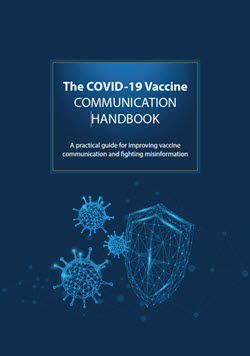 The following description is taken from the press release published by Bristol University in January 2021:
The following description is taken from the press release published by Bristol University in January 2021:
A team of renowned scientific experts joined forces from across the world to help fight the spread of misinformation about the COVID-19 vaccines, which hold the key to beating the deadly pandemic and releasing countries from debilitating lockdown restrictions.
Lead author Professor Stephan Lewandowsky, Chair in Cognitive Psychology at the University of Bristol, said: “Vaccines are our ticket to freedom and communication about them should be our passport to getting everyone on board. The way all of us refer to and discuss the COVID-19 vaccines can literally help win the battle against this devastating virus by tackling misinformation and improving uptake, which is crucial. That’s why we produced this handbook so everyone has the basics, as well as more comprehensive information, at their fingertips and can do their part in sharing facts, not fiction, to put us on the road to recovery rather than a path of further suffering.”
Social media has fuelled a so-called ‘infodemic’, resulting in conspiracy theories and other misleading claims being shared rampantly, which could discourage people from being vaccinated and compromise efforts to achieve herd immunity. The COVID-19 Vaccine Communication Handbook sets out the facts, highlighting how the vaccines are overwhelmingly safe and effective.
Co-author Adam Finn, Professor of Pediatrics and Director of the Bristol Children’s Vaccine Centre at Bristol Medical School, a virologist who has played a key role in the COVID-19 vaccine developments, said: “Accurate information about vaccines is becoming harder to distinguish from convincing but misleading fiction. This reduces uptake and so their impact on public health and harms us all. Although vaccines enjoy majority support that politicians can only dream of, we can no longer take this for granted. It’s time to take the initiative in ensuring people are not duped into making wrong decisions that harm them, their children and their communities.”
Topics in the guide include public behaviour and attitudes, policy, facts, and misinformation.
Co-author Julie Leask, a social scientist and Professor at the University of Sydney who chairs one of the World Health Organization working groups on vaccinations, said: “The safest and most effective vaccines against COVID-19 are of no use if people cannot, or will not, take them. This handbook comes at a crucial time – when people around the world are deciding whether or not they will accept a COVID-19 vaccine. More than ever, we need to be communicating effectively and the handbook brings the science of communication to the communicators.”
Advancing previous endeavours to combat bogus claims and falsehoods, this evidence-based guide compiled by more than 25 leading experts links to a wiki of further detail for each of the key topics, giving people access to more in-depth research and allowing further comments and guidance to be added in real-time.
Figure 1: Example of short debunkings following the Fact-Myth-Fallacy format (click image for larger version)
Professor Lewandowsky said: “It’s important to challenge and debunk misinformation in a positive, constructive manner. I encourage people to approach this by providing a truth sandwich – start with the key facts, including that the vaccines have been shown to be 95 per cent effective and have been comprehensively tested without cutting any corners.
“Then address the misinformation. For instance, if people say the vaccine can’t have been tested properly because it was developed so quickly, explain why this isn’t the case. Given the severity of the pandemic, more resources and expertise than ever were dedicated to this effort. Due to its high profile, volunteers for the trials were recruited much faster than usual. The Ebola vaccine effectively took ten months from initial testing to trials in the field, so this has been done before. Then finally reiterate the facts so they stay fresh mind.”
The interdisciplinary team included experts in vaccine psychology, education, and virology who volunteered their time and expertise to produce this living document, which will continue to evolve through the wiki as the vaccine rollout gains pace.
Co-author Doug Lombardi, an educational psychologist and Associate Professor at the University of Maryland, added: "Misinformation has contributed to a false sense of balance, where pro- and anti-vaccination positions are being presented as two equal sides in an ongoing scientific debate. In reality, the scientific consensus has endorsed the effectiveness of mask wearing, social distancing, and widespread administration of COVID-19 vaccines. The COVID-19 Communications Handbook is a practical guide for helping people to learn the scientific facts about COVID-19 vaccines and protect themselves against the rampant spread of misinformation."
Professor Lewandowsky said: “The COVID-19 vaccines are a stunning accomplishment of science. But our passage to freedom depends on most people getting vaccinated. This handbook and the associated wiki give frontline medical staff, journalists, policy makers, and the public at large the tools to understand why vaccines are safe and how misinformation about them can be rebutted.”
Translations
The COVID-19 Vaccine Communication Handbook has been translated into the following languages which can all be downloaded from the SciBeh Wiki:
| German Download 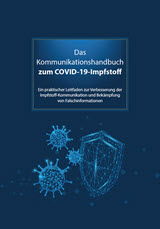 |
French Download 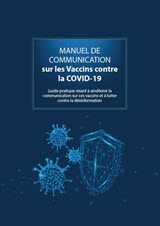 |
Spanish Download 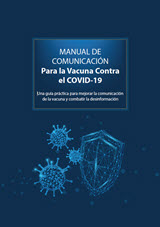 |
||
| Swedish Download 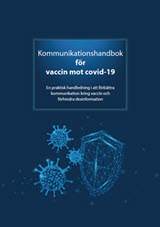 |
Japanese Download 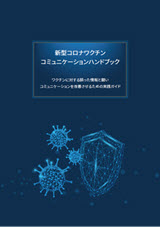 |
Italian Download 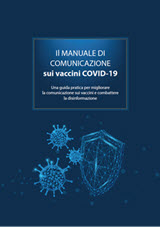 |
||
| Serbian Download 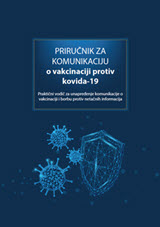 |
Thai Download 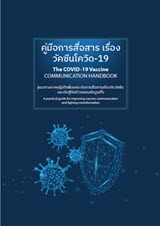 |
Croatian Download 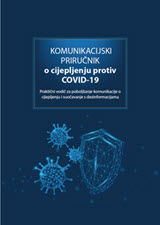 |
||
| Portuguese Download 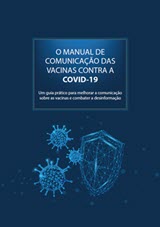 |
Greek Download 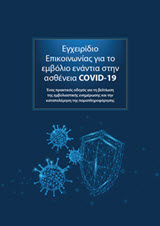 |
Polish Download 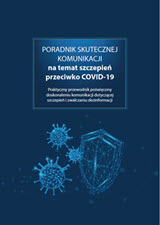 |
||
| Finnish Download  |
More languages Coming soon! 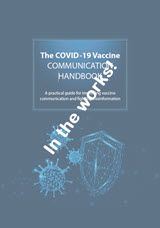 |
|||
Note to other translators:
If you'd like to translate The COVID-19 Vaccine Communication Handbook into another language or help with a translation currently in progress, please contact us by selecting "Enquiry about translations" from the contact form's dropdown menu. We'll then get in touch with additional information.































 Arguments
Arguments























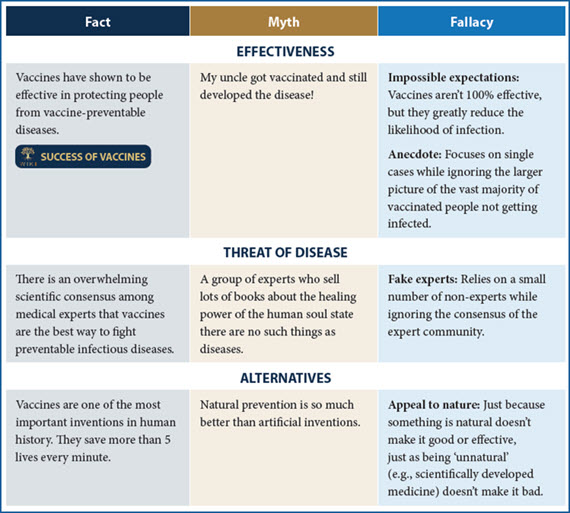









Comments